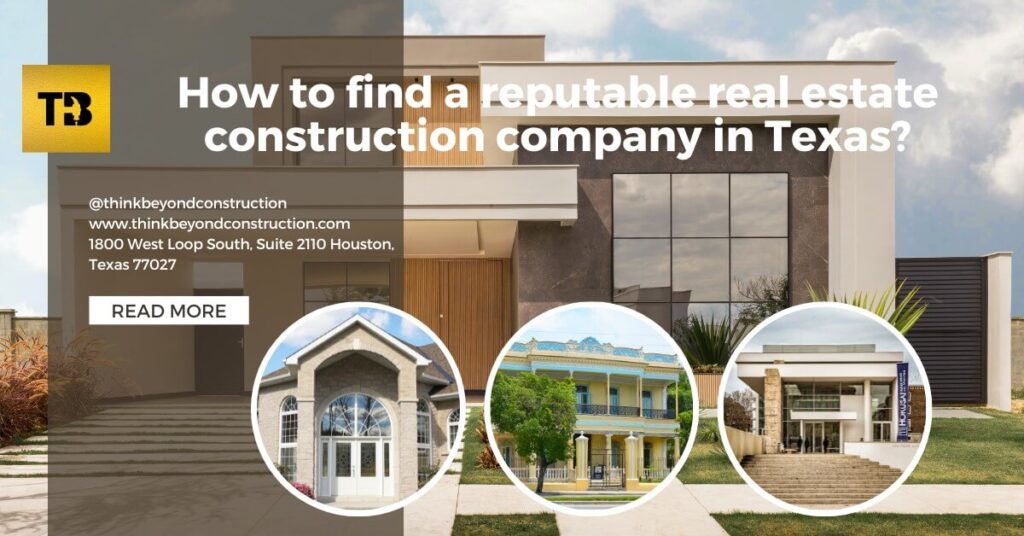Real estate construction and development play important parts in shaping the landscape of towns and societies worldwide. These sectors cover various tasks, including project conception, planning, and building and infrastructure development.
This expert guide will dig into real estate development and construction fundamentals, offering insights into the important steps, difficulties, and best practices that fuel successful projects.
Understanding Real Estate Development
Real estate development is turning vacant land or underutilized buildings into valuable assets by building new structures or renovating existing ones. It includes a multifaceted strategy combining financial savvy, architectural expertise, legal concerns, and environmental care. Real estate development starts with discovering possible prospects, from creating residential neighborhoods, commercial complexes, or mixed-use buildings that meet various demands.
Key Stages of Real Estate Development
Here are the key stages of real estate development:
Feasibility and Market Research:
Developers conduct in-depth market research early to assess a project’s potential. They study possible competition, demand, supply factors, and demographic changes. Financial feasibility studies are conducted to ascertain if the project fits within the restrictions of the budget and will yield the anticipated returns.
Site Acquisition:
The next stage is to purchase the site after locating an appealing possibility. It entails discussions, diligence to evaluate potential risks or obligations, and obtaining regional authorities’ required licenses and approvals.
Design and Planning:
At this stage, architects, engineers, and urban planners collaborate to develop a comprehensive design considering sustainability, usability, aesthetics, and adherence to local construction codes. With careful planning, the project will align with the neighborhood’s requirements and goals it will benefit from.
Financing and Funding:
Real estate construction demands significant funding and capital. There are several options for developers to get funding, including partnerships, bank loans, equity investments, and joint ventures.
Development and Construction:
Construction starts when money has been arranged, and the project’s conceptual design starts to take shape. Construction teams of skilled workers work methodically to guarantee quality, safety, and efficiency.
Sales and Marketing:
As the project approaches completion, sales and marketing activities ramp up to draw in new renters or purchasers. Sales and leasing strategies are developed to increase the property’s value and return on investment.
Handover and Post-Development Services:
Once a project is completed, it is handed over to the intended users or occupiers. Post-development services like property management and upkeep are essential for a property to succeed and sustain over the long term.
Challenges in Real Estate Development
Here are some of the challenges that you can face in real estate development business:
Regulatory and Permitting Obstacles: It can be time-consuming and expensive to navigate the intricate network of regulations, zoning rules, and permitting procedures. The timing of projects and their costs may be affected by delays in getting approvals.
Market Volatility: Economic conditions, interest rates, and world events impact real estate market changes. Developers must carefully consider the market risks, and their strategies must include backup plans.
Risks associated with financing: Obtaining money for significant projects may be difficult, particularly when lenders become more risk-averse during economic uncertainty. Developers need a sound financial strategy to entice investors or lenders and show that the project will be profitable.
Environmental Considerations: As people’s knowledge of the environment grows, sustainable and eco-friendly development practices are becoming more important. For long-term profitability and community approval, adhering to environmental rules and adopting green building practices are essential.
Community Opposition: Due to worries about traffic, noise, or environmental effects, some projects encounter opposition from nearby communities or interest groups. Building strong connections and winning over the community requires engaging stakeholders and responding to their concerns.
Best Practices in Real Estate Development
- Complete Due Diligence: Making judgments requires thorough investigation and analysis in the early stages. Detecting possible difficulties and possibilities might be useful through extensive feasibility studies, risk assessments, and market evaluations.
- Collaboration and Communication: A project’s success depends on effective communication and collaboration among stakeholders, including developers, investors, designers, builders, and local authorities. Regular updates and meetings make it easier to deal with problems as they arise and promote a positive work environment.
- Sustainable Development: Adopting sustainable practices improves the property’s value and marketability in addition to helping the environment. Energy-efficient technology, waste-reduction techniques, and green construction standards can draw in consumers and investors concerned about the environment.
- Adapting to Market Trends: Developers may design projects that meet the moment’s needs by observing customer preferences and market trends. This adaptability ensures that developments are still appealing to potential renters and purchasers.
- Transparent Financial Management: Effective financial management is essential for project success and includes budgeting, cost management, and financial reporting. Investors and lenders gain trust in financial transactions through transparency.
Conclusion
Construction and real estate development are intricate, dynamic processes that greatly influence the physical environment and people’s lives. Successful projects need careful planning, teamwork, and adaptability to market changes.
This professional guide has shed light on the complexity of real estate development by emphasizing the key steps, difficulties, and best practices that lead to successful projects. Are you a real estate investor searching for profitable options in the residential market?
Think Beyond Construction is your best option. We are not just another ordinary real estate development firm; we are innovative builders committed to creativity, environmental responsibility, and community enhancement.




